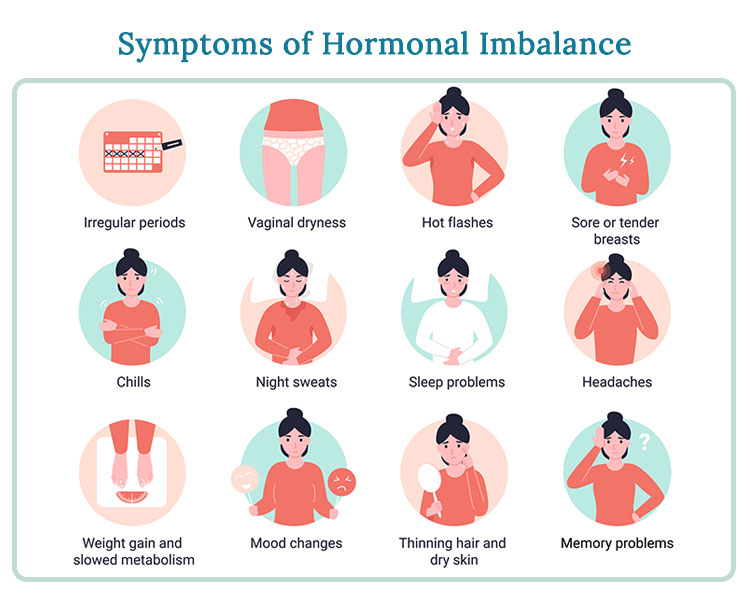ntroduction: Looking Beyond the Obvious
If you’ve ever felt like PMS takes over your life leaving you anxious, moody, bloated, or exhausted you’re not alone. But here’s the surprising truth: PMS isn’t just “bad luck” or something women have to accept. More often than not, hidden triggers are driving your hormonal chaos. Identifying and addressing these root causes can dramatically reduce PMS and restore hormonal balance.
In this guide, we’ll explore the most overlooked triggers of PMS, how they affect your body, and what you can do to regain control naturally.
The Myth: PMS is Normal
Yes, mild hormonal shifts before your period are normal but debilitating PMS symptoms aren’t. Severe cramps, mood swings, breast tenderness, and fatigue are signals that your body’s hormone balance is off. Instead of masking symptoms with painkillers or birth control, functional medicine focuses on why these imbalances happen in the first place.
Hidden Trigger #1: Blood Sugar Swings
Unstable blood sugar levels are a major but overlooked driver of PMS. Spikes from refined carbs or caffeine followed by crashes lead to irritability, cravings, and fatigue.
How to fix it:
- Eat balanced meals with protein, fat, and fiber.
- Avoid skipping meals.
- Swap processed snacks for whole-food options.
Pro Tip: Women who stabilized blood sugar often report fewer mood swings and less bloating within just 2–3 cycles.
Hidden Trigger #2: Poor Liver Detox
Your liver helps metabolize estrogen. When sluggish, estrogen builds up and fuels PMS symptoms like breast tenderness, heavy periods, and moodiness.
How to support liver health:
- Eat cruciferous vegetables daily (broccoli, kale, cauliflower).
- Add sulfur-rich foods like garlic and onions.
- Drink lemon water to kickstart detox pathways.
- Reduce alcohol and processed foods.
👉 Wellhistic’s Hormone & PMS Support is packed with nutrients that help the liver clear excess estrogen naturally.
Hidden Trigger #3: Gut Imbalances
Your gut isn’t just about digestion it regulates estrogen through the estrobolome (a group of gut bacteria that metabolize hormones). Poor gut health means estrogen recirculates, worsening PMS.
Gut-balancing tips:
- Include daily fiber from flax, chia, and greens.
- Add fermented foods like sauerkraut or kimchi.
- Consider a high-quality probiotic.
Case Study: A 29-year-old woman with chronic PMS and bloating noticed a 50% reduction in symptoms after 8 weeks of focusing on gut health with fiber and probiotics.
Hidden Trigger #4: Chronic Stress
Stress steals progesterone to make cortisol, leaving estrogen unopposed—a classic setup for PMS.
Stress reset strategies:
- Daily breathwork or meditation.
- Prioritize sleep (7–9 hours).
- Gentle exercise like yoga or walking.
For additional support, Wellhistic’s CALM combines magnesium and adaptogens to ease stress, anxiety, and mood swings.
Hidden Trigger #5: Nutrient Deficiencies
Key nutrients are often low in women with PMS. Without them, hormone pathways can’t function properly.
Most common deficiencies:
- Magnesium → linked to cramps and anxiety.
- Vitamin B6 → supports mood and neurotransmitters.
- Omega-3s → reduce inflammation and irritability.
- Vitamin D → regulates hormones and immune health.
Step-by-Step: Identifying Your Triggers
| Step | What to Track | Why It Matters |
| 1 | Daily food & mood journal | Connect diet to PMS flares |
| 2 | Sleep quality | Poor sleep worsens symptoms |
| 3 | Stress levels | Identify hidden hormone drains |
| 4 | Digestive health | Spot gut-related triggers |
| 5 | Cycle symptoms | Reveal patterns over 2–3 months |

Tracking allows you to move from guessing to knowing and gives you a roadmap to address the true root causes.
The Bigger Picture: PMS as a Messenger
PMS isn’t the enemy it’s your body waving a red flag that something deeper is out of balance. By uncovering triggers like poor detox, gut imbalances, stress, and nutrient deficiencies, you can transform your cycle into a time of clarity rather than chaos.
Conclusion & Next Steps
If PMS has been running your life, don’t settle for band-aid fixes. Start by tracking your symptoms and supporting your body’s foundations. Focus on balanced meals, gut health, stress management, and targeted supplements like Wellhistic’s Hormone & PMS Support or CALM to help restore balance.
With the right approach, PMS doesn’t have to control your month you do.





